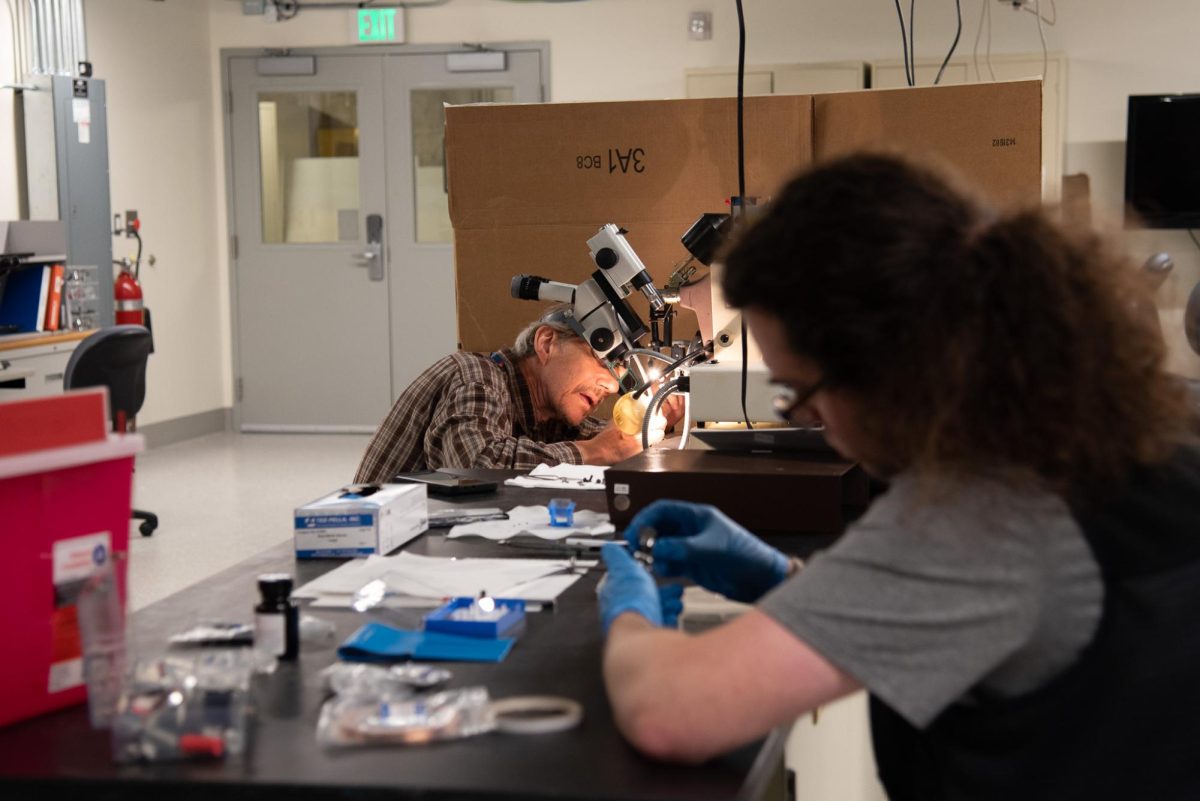A new Device Characterization Lab at UVM will be used for certification programs as well as research, said Matthew Gallagher, director of the semiconductor curriculum at UVM.
The lab was built through a partnership with GlobalFoundries and funded by a $2.6 million grant from the U.S. Department of Education, Gallagher said. The grant’s purpose was to develop a curriculum centered around semiconductors which would also fulfill GlobalFoundries’ needs, he said.
GlobalFoundries is a semiconductor manufacturer with a location in Essex Junction, Vt., according to their website.
“We are working together with [GlobalFoundries], using this money to create the lab, buy the equipment, hire people and get this off the ground,” Gallagher said.
The principal investigators for the grant—the people who applied for it—are Dean of CEMS Linda Schadler, Chair of Electrical and Biomedical Engineering Jeff Frolik and Chair of Physics Randy Headrick, Gallagher said.
The semiconductor certification is available to undergraduate students, and a micro certification is available for graduate students, Headrick said.
The lab will also be used for independent studies and is located in Discovery W016 where there was previously a physics machine shop, Headrick said. The undergraduate certification will be worth 17 credits and the graduate micro certification will be worth fewer, he said.
“For the University of Vermont to lead this tech hub, it is a big deal,” Headrick said.
The lab is a feature of a course which is a requirement for the certification, said Couby Ouattara, a senior electrical engineering major. The next course in the sequence will be a characterization course focusing more on physics and will also use the lab, he said.
“Right now we are trying to get used to the equipment; we just finished making a few measurements, using the probes and characterizing some microchips and looking at the layout of them,” Ouattara said.
Some of the equipment that GlobalFoundries donated were tabletop scanning electron microscopes, probes and microscopes, said Kelsey Mattoon, manager of module engineering at GlobalFoundries. This includes some of the same equipment they use everyday, she said.
The lab will enable students to conduct real-world applications testing, she said.
“With the addition of the semiconductor certificate program, I think those skills, whether it’s true device applications or just the skills to learn how to navigate in the real world from a career perspective, will really set any student up for a phenomenal amount of success,” Matoon said.








